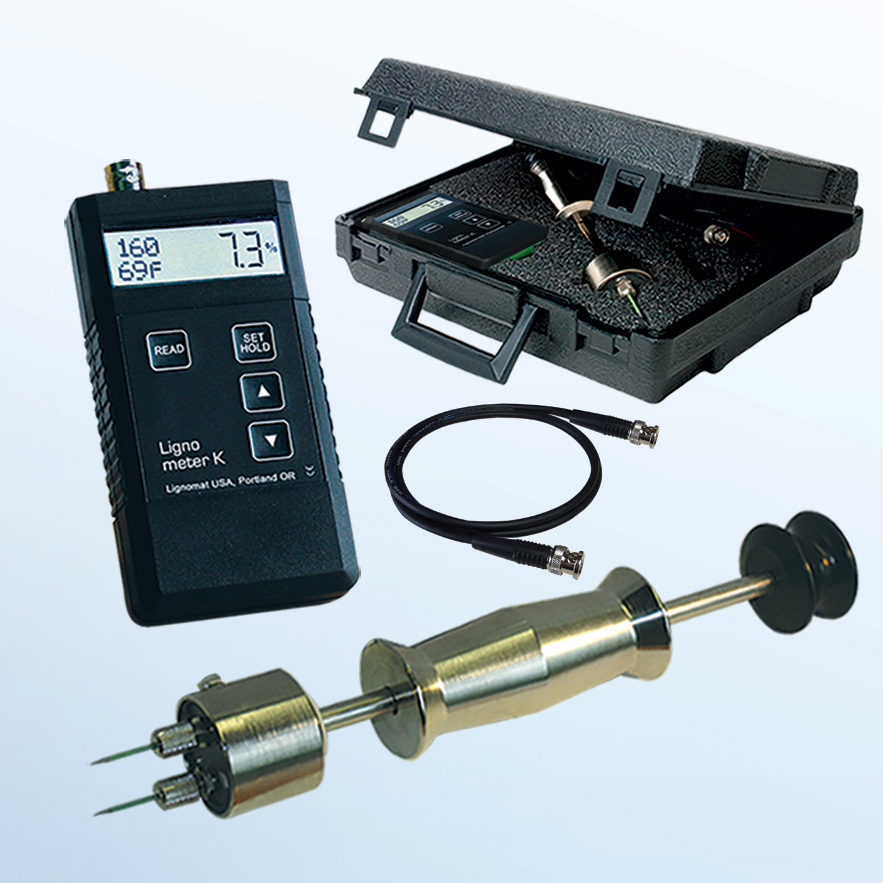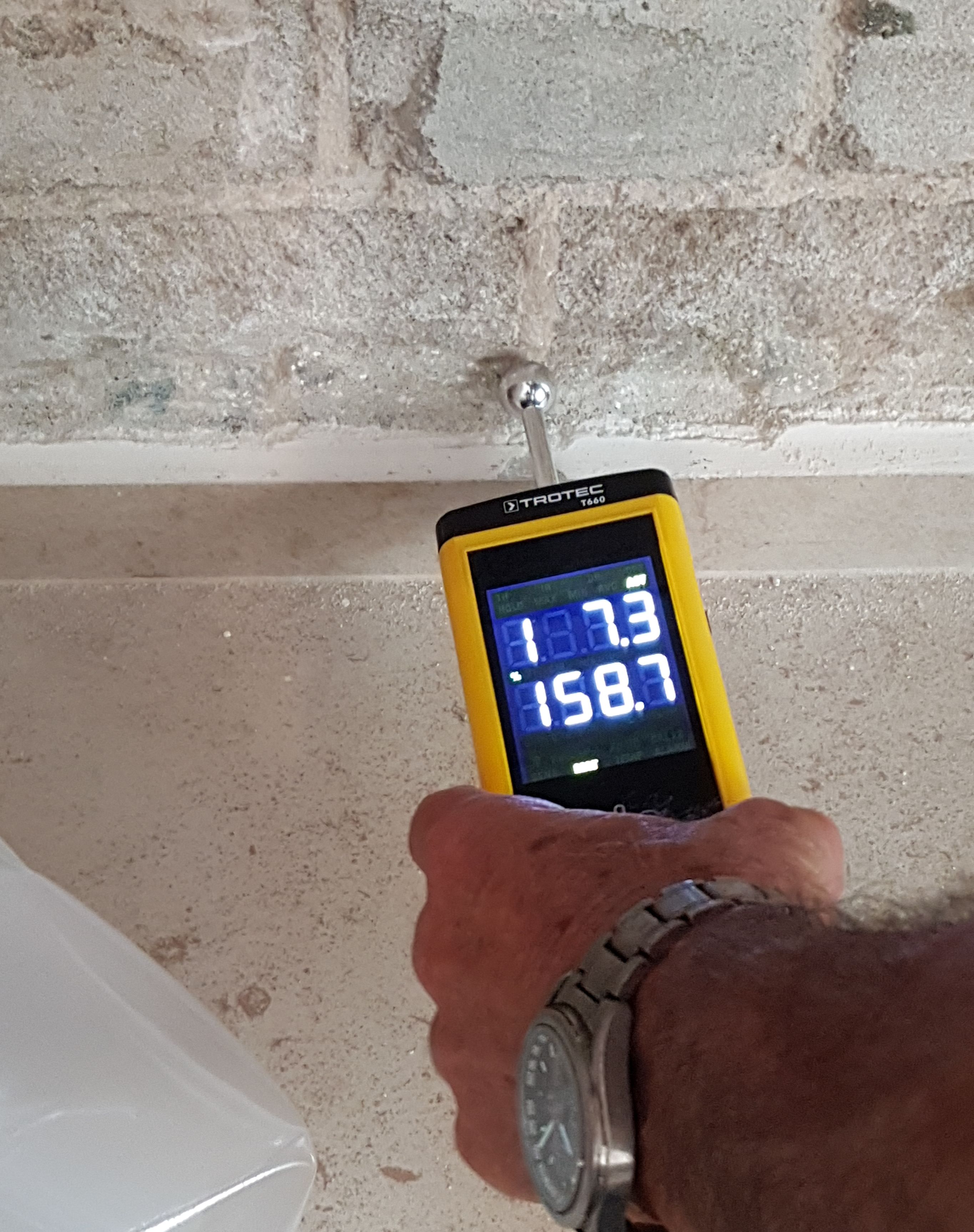The Scientific Research Behind Moisture Meters: How They Work and Why They're Essential
The Scientific Research Behind Moisture Meters: How They Work and Why They're Essential
Blog Article
The Ultimate Guide to Moisture Meters: A Comprehensive Introduction and Exactly How They Can Conserve You Money
Dampness meters serve as indispensable tools in finding and keeping track of moisture web content in products, aiding in avoiding expensive problems and guaranteeing the quality of products. Understanding the nuances of various types of wetness meters, their applications, and the prospective cost-saving advantages they use can be a game-changer for companies and professionals alike.
Sorts Of Moisture Meters
Different kinds of moisture meters are offered for various applications in numerous sectors. One common kind is the pin-type moisture meter, which gauges the electric resistance in between 2 pins put into a product. This kind is ideal for timber, drywall, and various other structure materials. Pinless wetness meters, on the various other hand, use electromagnetic sensor plates to scan a bigger area without causing damage to the product's surface. Moisture Meter. These meters are suitable for promptly evaluating dampness degrees in large locations such as wall surfaces and floors.

Infrared wetness meters measure the thermal residential or commercial properties of a product to determine its wetness content non-invasively, making them beneficial for applications where pin or pinless meters may not be appropriate. Understanding the different kinds of moisture meters offered can aid markets choose the most proper device for their specific wetness measurement demands.

Benefits of Utilizing Wetness Meters
Dampness meters use invaluable benefits in properly analyzing and monitoring moisture degrees in varied materials and environments. One of the key advantages of making use of moisture meters is the prevention of prospective damages created by excess dampness.
Moreover, making use of wetness meters can result in enhanced power performance. By determining locations with high moisture degrees, such as leakages or inadequate insulation, adjustments can be made to boost power conservation and decrease energy prices. In farming settings, wetness meters play a critical function in enhancing plant returns by enabling farmers to check dirt moisture degrees and make notified irrigation choices. In general, the advantages of utilizing moisture meters extend across numerous markets, offering cost-effective options and promoting much better high quality control practices.
How to Select the Right Dampness Meter
When selecting a moisture meter, it's necessary to make sure that the meter is appropriate for the particular product you will be screening. Various materials have varying electrical residential properties that can influence dampness analyses, so picking a meter developed for your material is essential for exact outcomes. By very carefully reviewing these elements, you can choose a moisture meter that fulfills your needs and gives precise wetness dimensions for your projects.
Proper Methods for Wetness Meter Use

Cost Savings With Wetness Meter Applications
Exactly how can the calculated use of wetness meters result in significant cost financial savings throughout various industries? Dampness meters play an important role in cost click reference financial savings by protecting against possible damages and making certain quality assurance in various industries. In the agriculture sector, wetness meters aid in determining the optimal time for collecting plants, avoiding over-drying or excess dampness that can affect the final item's high quality. This exact surveillance assists farmers avoid unneeded losses and maximize their return.
Similarly, in construction, moisture meters aid stop pricey problems by detecting wetness levels in structure materials, such as wood or concrete, which can bring about structural concerns if not attended to quickly. By recognizing problem locations early on, specialists can take restorative actions to stay clear of extensive fixings or substitutes, ultimately conserving money and time.
Additionally, in the food handling sector, wetness meters are essential for keeping track of product top quality and ensuring compliance with security regulations. By precisely gauging dampness content in foodstuff, makers can stop perishing, keep quality, and minimize waste, leading to significant cost financial savings. Overall, the tactical application of wetness meters is a useful financial investment that can lead to substantial expense reductions and enhanced performance across different industries.
Conclusion
In final thought, moisture meters are important tools for measuring and identifying wetness levels in numerous materials. By using the appropriate moisture meter and complying with proper methods, users can successfully stop costly damages caused by excess dampness.
Moisture meters offer as vital tools in identifying and keeping an eye on moisture material in materials, aiding in preventing pricey damages and ensuring the quality of items. Infrared wetness meters determine the thermal residential or commercial properties of a product to determine its wetness material non-invasively, making look at this now them helpful for applications where pin or pinless meters might not be ideal.Moisture meters supply important benefits in properly keeping an eye on and assessing moisture levels in diverse products and settings. In agricultural settings, wetness meters play a vital function in maximizing plant yields by making it possible for farmers to check dirt wetness degrees and make Check This Out educated watering choices.In verdict, moisture meters are beneficial devices for determining and identifying wetness degrees in numerous materials.
Report this page